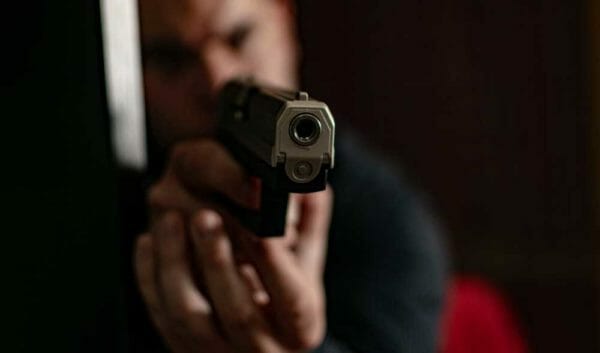Texas Lawmakers Propose ‘Kyle’s Law’ to Bolster Self-Defense Rights

Recent developments in Texas legislation aim to provide enhanced protections for individuals who act in self-defense while facing the potential for civil litigation. House Bill 170, also recognized as “Kyle’s Law,” seeks to establish civil immunity for individuals not charged with a crime after utilizing force in self-defense.
Overview of Kyle’s Law
Under the proposed law, Texans who are either not indicted by a grand jury, have their charges dismissed, or are acquitted at trial would be protected from civil liability stemming from their actions taken in self-defense. The law also extends protections to threats of force deemed justified under Chapter 9 of the Texas Penal Code, which governs self-defense.
The legislation is designed to deter politically motivated lawsuits that could financially burden individuals who have been cleared of criminal wrongdoing. Individuals successfully defending against civil lawsuits will also be able to reclaim legal costs.
Context Behind the Legislation
The motivation for this legislative move is partially rooted in the high-profile case of Kyle Rittenhouse. Rittenhouse was acquitted in a self-defense case from 2020, yet he continues to confront ongoing civil litigation related to the incident. His case, where he shot three individuals during social unrest, highlighted potential legal vulnerabilities faced by those who act in self-defense.
Support and Opposition
Rittenhouse has since become an outspoken advocate for gun rights in Texas, endorsing further legislation such as SB 1362, aimed at curtailing red flag laws. Proponents of HB 170 emphasize that the law would prevent individuals from facing dual punishments—first through criminal prosecution, followed by civil lawsuits—regardless of public opinion on specific cases.
Historical Context
The bill’s advancement through legislative committees reflects a broader effort by Texas lawmakers to strengthen self-defense rights. Authored by State Rep. Ryan Guillen (R–Rio Grande City) and backed by several conservative co-authors, the legislation encapsulates growing concerns over the current legal landscape surrounding self-defense actions.
Additionally, a related Senate bill, SB 1730, filed by Senator Bob Hall (R–Edgewood), reinforces this coordinated legislative agenda, inspired in part by cases like that of Kyle Carruth. Carruth incurred significant legal debt following a justified shooting incident that resulted in civil litigation.
The Road Ahead
Proponents argue that if enacted, HB 170 could serve as a significant precedent not only within Texas but potentially across the nation, promoting a framework where self-defense rights do not result in overwhelming financial burdens.
Chris McNutt, President of Texas Gun Rights, stated, “Individuals who are acquitted or never even charged for using their God-given right to self-defense shouldn’t be subjected to financial ruin.” He posits that robust self-defense legislation is crucial to ensuring constitutional rights are practically applicable to all individuals.
As the legislative process unfolds, the implications of Kyle’s Law may resonate far beyond Texas, signaling a potential shift in how self-defense cases are approached legally.
About the Author: José Niño is a freelance writer based in Austin, Texas. Connect with him on Facebook and Twitter or subscribe to his newsletter “Jose Nino Unfiltered” on Substack.com.

